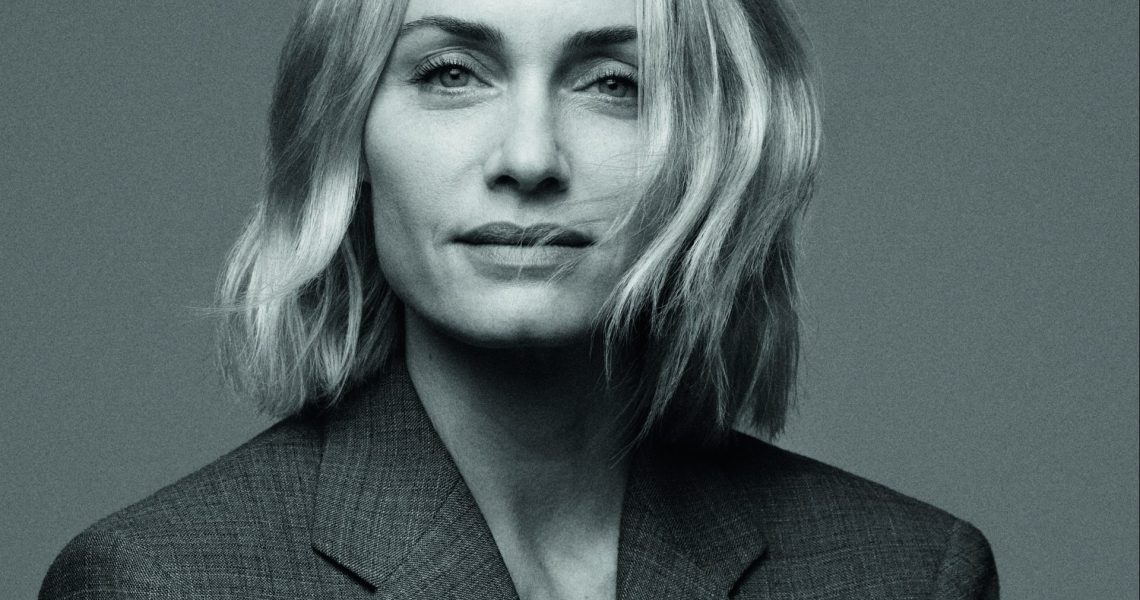Amber Valletta has championed sustainability since founding Master & Muse, a responsible fashion production company in partnership with Yoox.com back in 2013. Though the brand closed in 2016, the supermodel and actress has been outspoken on the topic at fashion conferences like The Copenhagen Fashion Summit and the H&M Foundation Global Change Award, sat on boards of non-profit organizations such as Nest, and developed films on climate change through her company A Squared Films LLC. She is also Vogue’s first contributing sustainability editor. But late last month, the Fashion Institute of Technology announced Valletta in an academic capacity as its sustainability ambassador, with a focus on the biodesign courses.
The accelerated drive for change and a growing interest in circular, compostable materials has opened a whole field of opportunities in biodesign. Synthetic fibers such as polyester make up 60% of all fashion clothing nowadays, with fast fashion using 50% of virgin plastic in its garments. Biodesign offers an alternative to these plastics, offering everything from mushroom and pineapple leather to thread made from kelp. It also offers a different form of production, with clothing grown to fit molds rather than being cut to size, leading to less waste through scrap materials. Biodesign can also be used to move away from the toxic substances – including those that are lead- and petroleum-based, which are used in commercial textile dyeing and processing.
But more research and awareness needs to be done to implement the various types of technology at scale and universities are coming up with new ways to get engineers and designers involved in creating these projects. FIT has expanded its course offerings to include sustainability in fashion merchandising, a minor in ethics and sustainability, sustainable packaging, international corporate responsibility as well as developing its annual Biodesign Challenge. Valletta hopes to learn more about the sector from the students innovating in the space. “The possibility to collaborate with and learn from young people who will eventually run our creative industries inspired me to join FIT. They represent our future.”
The education sector is responsible for helping a vast number of students hoping to shape the future of fashion. For Valletta, “education is key to all change for the betterment of our planet. We have an obligation to the future of earth to teach ecology, social justice, human rights and conservation to students from kindergarten all the way through higher education. The way forward is through the understanding of where we have been, and then reimagining through education a brighter world for all.” This multi-faceted approach is essential for developing leaders in the space who consider different areas of fashion and its impact.
Previously, design schools solely focused on fashion education centering around cutting and pattern-making, rather than teaching about the industry’s impact on the environment or engaging in sustainable production. Cassandra Quinn, founder of CQ Studio, an innovative research and development studio combining science, craft and fashion was among the first graduates of the novel MA Biodesign course at Central Saint Martins in the U.K. She believes that “it is vital that students are educated about the impacts of our supply chains. Often it is not until students reach the industry or conduct their own research that they realize the detrimental impact the production of garments has on the environment. If we are teaching future fashion designers and marketers about alternative approaches to production and sharing insight into innovative and regenerative practices, we are going to set them up for the success of both the fashion industry and our environment.”
Speaking on the ambassador appointment in a statement, FIT president Dr. Joyce F. Brown said, “Over the years, Amber has been deeply involved in FIT’s sustainability initiatives both on and off campus and has quickly become a close friend of the college. She is also a dedicated and respected advocate and activist, which makes naming her our first official sustainability ambassador a natural and easy decision.”
Although many celebrities have taken on brand titles like that of the “creative director”in fashion, Valletta has brought tangible developments through non-profits and advocacy in the sustainability space. Her involvement with FIT and biodesign specifically will be a valuable support to the educational community dedicated to finding solutions to fashion’s waste problem. Cassie believes that “celebrity ambassadors can help grow interest in biodesign, as we must continuously appeal to the next generation if we want to support an earth-first fashion industry.”
Ad position: web_incontent_pos1
While brand ambassadors like actress Maisie Williams for H&M and TV presenter Laura Whitmore for Primark have come under fire for supporting brands that have been involved in supply chain worker violations, Cassie said academic ambassadors can lead by example, bringing attention to less glamorous topics within circular fashion and advocating for their wide-scale implementation. “While there are many celebrity ambassadors that are doing great things, I also believe we should proceed with caution,” she said.




